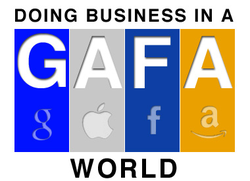June 25, 2019
Breaking news

Le 24 juin 2019, le Régulateur irlandais a publié un rapport visant à participer à la consultation publique lancée par le ministère de la Communication, portant à la fois sur la façon dont il convient de transposer la directive européenne sur les services audiovisuels et sur la perspective d'une loi nationale sur la "régulation des contenus dommageables sur les plateformes en ligne".
Pour le Régulateur, le rapprochement des deux actes législateurs offre une opportunité d'une régulation globale des "médias en ligne", offrant à l'internaute une "sécurité" que la simple transposition de la Directive ne permet pas. Ainsi la seconde loi complétera la première.
Pour le Régulateur, la loi nationale à adopter doit permettre au Régulateur de donner une pleine sécurité à l'internaute irlandais ("online safety"), en retirant les contenants violents ou dommageables (le terme harmful est difficile à traduire par un seul mot en français) et en l'avertissant à propos de ceux-ci.
Comme l'explicite le rapport (p.52) :
The BAI considers that the following four strategic objectives and responsibilities are relevant for an online safety regulator operating within the new media regulatory structure: • Rectifying serious harms occurring to Irish residents through their use of online services. • Ensuring that individuals and members of groups that are frequently subject to harmful online content can fully benefit from digital technology and social media. • Reducing online harms by introducing online safety rules for online platforms. • Promoting responsibility and awareness of online safety issues among the general population and industry. To fulfil these objectives and responsibilities, the BAI considers that the Online Safety Regulator could have the following three functions:
1. Operating a statutory mechanism to remove harmful online content that directly affects Irish residents (Rectification of Harm)
2. Developing and enforcing an online safety code for Irish-resident online platforms (Minimisation of the potential for Harm)
3. Promoting awareness of online safety issues among the public and industry (Preventing Harm). Ensuring that online services play a more effective role in tackling online safety issues can provide wide, “collective” benefits to large numbers of individuals simultaneously.
Visant expressément Youtube et Facebook, qui en Europe ont choisi de se localiser en Irland, le Régulateur demande une Régulation des plateformes de partage de vidéos qui doit, à travers un Code s'appliquant à eux, permettre de régir leur activité qui se déploie à travers toute l'Europe. Ce Code aurait vocation à rappeler en premier le principe de la libre expression. Tout en organiser la "sécurité en ligne" de l'internaute.
Le Régulateur irlandais des Médias sera en charge de cela. Et puisque les opérateurs sont localisés en Irlande, ses conceptions et ses actions auront donc un effet européen : comme le dit le Président de l'Autorité de Régulation lui-même : " This is a particularly important issue for this country, given that many of the majoar international platforms are based her. Ireland has a unique opportunity - and responsability - to lead the debate and chart the way forward in relation to online safety and regulation".
____
"to lead" ?
Il n'est pas certain que les autres régulateurs nationaux ni la Commission européenne partagent une telle conception irlando-centriste de la régulation euroréenne des médias.
Dec. 3, 2014
Breaking news

Available in several languages, the document is titled: Dynamic telecoms market requires modern legal bases.
The consultation document intends to proceed with a progressive review". A first step of review will take place late 2015.
Operators have already protested about the narrowness of the consultation, in particular because the issue of optical fiber is not asked!footnote-5.
Dec. 1, 2014
Breaking news

However, France and Germany have asked 27 November 2014 to the European Commission to take steps against those who hold the platforms on the Internet, including search engines. Everyone knows that this is the famous "GAFA" (Google, Apple, Facebook and Amazon).
It seems that the EU institutions fit, since the European Parliament voted on November 27 a text saying that it could ban these companies to monetize their platform activities themselves.
By their regulatory perspectives, Europe gets "retrograde" against the US dynamism?
At first glance, one might say. But it may be that these companies have become "critical", they take the heart of the digital economy, or even the knowledge economy and social cohesion. In such cases, the regulation of these objective phenomena justifies intervene directly in companies in which the social group comes to identify itself. If the company comes to stifle others, it is not that it stifles competition only, but innovation and free expression.
Then pass the mere vigilance competition law instruments of regulation, common in banking and financial law, such as transparency requirements.
This demonstrates Regulation and Supervision meet when companies become crucial.
Updated: Jan. 9, 2012 (Initial publication: Jan. 9, 2012)
Thesaurus : Doctrine
Updated: Dec. 20, 2011 (Initial publication: Dec. 20, 2011)
Thesaurus : Doctrine
